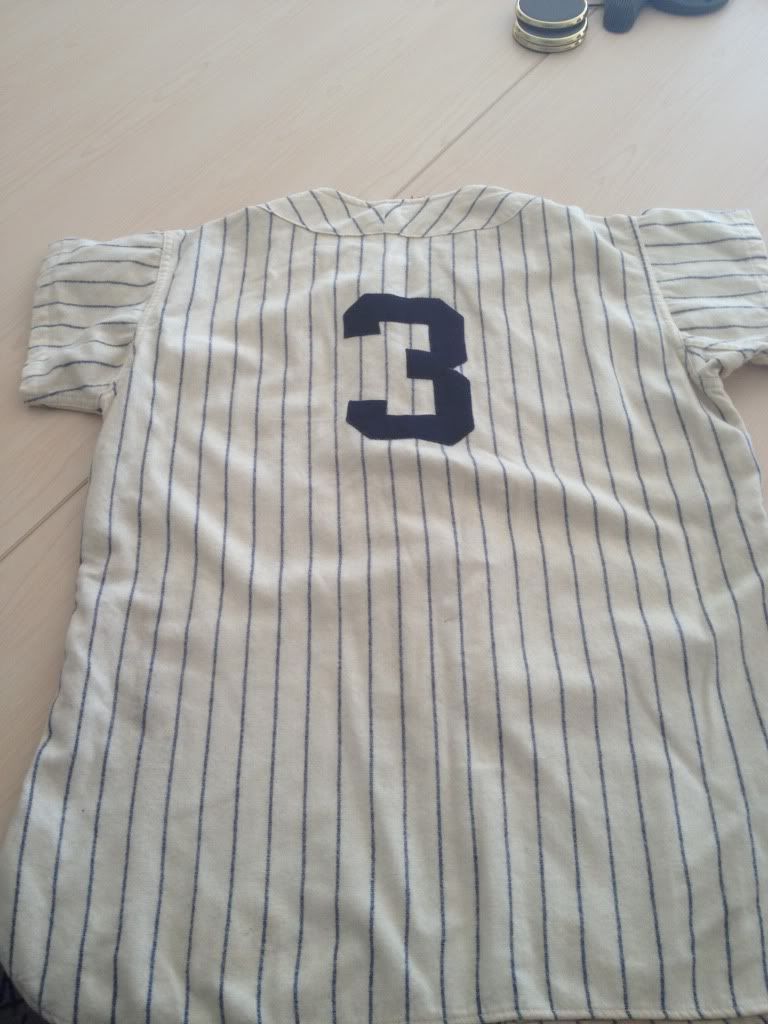SACRAMENTO, Calif. ? California Gov. Jerry Brown, a former Jesuit seminarian, vetoed a measure that would have enabled a potentially lucrative market for women to sell their eggs for medical research.
?Not everything in life is for sale, nor should it be,? said Brown in his Aug. 13 statement on the veto of bill A.B. 926. ?This bill would legalize the payment of money in exchange for a woman submitting to invasive procedures to stimulate, extract and harvest her eggs for scientific research. The questions raised here are not simple; they touch matters that are both personal and philosophical.?
Brown zeroed in on an increasingly complex aspect of egg sellers' understanding of the implications.
?In medical procedures of this kind, genuinely informed consent is difficult, because the long-term risks are not adequately known,? he cautioned. ?Putting thousands of dollars on the table only compounds the problem.?
Under California law and federal policy, women cannot be paid for contributing eggs for research; they can be paid only for expenses.
This year, Assemblywoman Susan Bonilla, D-Concord, authored A.B. 926, which would have allowed women to profit from providing their eggs.
The main beneficiary would have been the California Institute of Regenerative Medicine (CIRM). California voters authorized CIRM in 2004, largely due to a campaign asserting that it would carry out embryonic stem-cell research that was restricted by federal policy.
CIRM?s Geoffrey Lomax had urged passage of A.B. 926, saying that CIRM needs to be able to pay competitive rates for human eggs to compete in the market for them. He cited an Oregon Health and Science University (OHSU) researcher who, last spring, announced the creation of new human embryos from embryonic stem-cell lines purchased from egg donors who were paid up to $7,000 each.
That ?is above and beyond any out-of-pocket costs,? Lomax contended, saying the cost competition would prevent CIRM from buying eggs.
?
Moral Objections
Critics say that most egg donors for research are college students who donate eggs primarily to make money.
In recent years, stem-cell research has shifted heavily away from embryonic stem cells (ESC) to adult stem cells (ASC), as the success with the latter has opened new possibilities for health solutions. Less than 1% of the clinical studies currently under way around the world involve ESCs.
Yet?CIRM has persisted in promoting ESC research, awarding more than half of its grants for ESC research.
The Catechism of the Catholic Church teaches, ?It is immoral to produce human embryos intended for exploitation as disposable biological material? (2275).
In his 1995 encyclical letter Evangelium Vitae (The Gospel of Life), Pope John Paul II taught that the destruction of the human embryo is a violation of the respect owed to every human life, just as is procured abortion.
Ned Dolejsi, executive director of the California Catholic Conference, praised the veto of A.B. 926. ?We agree with the governor?s wise analysis.?
The conference opposed the bill because it would have put women?s health in jeopardy and would have created a marketing dynamic designed to exploit women who are most in need of resources: college students, immigrants and women with economic challenges.
While federal policy and California law do not allow paying donors for eggs to be used in research, eggs harvested for commercial medical use ? primarily in vitro fertilization (IVF) ??have no such restriction.
While advocates for A.B. 926 posed it as an equality issue, the situation is substantially different from the normal menstrual cycle.
In IVF, a potential mother?s eggs are retrieved, mixed with a donor?s sperm ? often from?the husband ? then transferred to the woman?s uterus. The procedure sometimes is used to assure birth of a baby with a specific sex or to overcome impotency.
IVF has resulted in nearly 4 million births in the last 35 years. In the U.S., it is a billion-dollar business.
?
Open-Ended Ramifications
But harvesting eggs for research is far more open-ended than helping a potential mother conceive artificially, which the Catechism of the Catholic Church also rejects as immoral because it separates the sexual act from procreation and, as a result, ?entrusts the life and identity of the embryo into the power of doctors and biologists and establishes the domination of technology over the origin and destiny of the human person? (2379).
Women who sell their eggs for research are treated to maximize egg production. They are given strong hormones to reduce estrogen production, stop menstrual cycles and ovulation, thus stimulating the development of large numbers of eggs. The eggs are surgically harvested.
Research goals typically focus on a distant horizon, rather than immediate parenting, so the donor does not know how her eggs will be used or what the long-term end of her eggs will be. The donors? consent does not address the question of where or how their potential progeny would be used.
At OHSU, biologist Shoukhrat Mitalipov, last spring, announced the creation of human embryos in which nuclei of the fertilized eggs were taken from different eggs. Mitalipov performed the switch by extracting the nucleus from an unfertilized egg and replacing it with the nucleus taken from a different egg. CIRM?s Lomax said the egg donors were paid up to $7,000.
Advocates argue that paying egg donors will help advance stem-cell research.
But biologist Alexander Meissner of the Harvard Stem Cell Institute argues that Mitalipov?s manipulated embryos will have little research value.
?Everything is over by the time you derive those cell lines,? Meissner said recently in Nature. ?There is no signature that would tell you what has happened.?
The alternative research approach uses ASCs. Those cells have naturally developed for a specific role in a mature body. ASCs can come from various parts of the body. Often, they are taken from the skin. They are then reprogrammed for different health roles and are termed induced pluripotent stem cells (iPS).
Catholic teaching holds that the use of ASCs for medical health needs is licit because it does not end a human life.
A.B. 926 was sponsored by California?s fertility industry, a billion-dollar business.
?
Gov. Brown?s Unpredictability
Brown?s veto message reflects his often unique analysis of issues. For nearly half a century, he has been an enigmatic and routinely unpredictable public figure.
The son of former Gov. Edmund Brown, Jerry was raised Catholic, graduated from San Francisco?s St. Ignatius High School and attended Santa Clara University for a year before entering the Jesuit novitiate in 1956. He left four years later and graduated from the University of California at Berkeley and Yale Law School. He flitted through a range of personal explorations, including a month working with Mother Teresa in Calcutta, and later studied Buddhism in Japan after losing a U.S. Senate race.
Brown has spent nearly three decades in public office, starting as an elected trustee of the Los Angeles junior college board, then as California secretary of state, before winning the governorship in 1974.
In 1998, Brown won the Oakland mayor?s race and served eight years; then he?was elected California?s attorney general. In 2010, he won the governor?s office again.
Brown married attorney Anne Gust in 2005 in a ceremony officiated by Sen. Dianne Feinstein in Oakland and?then repeated the same day in a Catholic church in San Francisco.
On many occasions throughout his public life, Brown has shown his knowledge of Catholic teachings and sometimes characterizes his actions in terms consistent with Catholic beliefs, as in his veto message on A.B. 926. ?
In his State of the State speech last January, Brown urged reform of California?s education system, describing it in terms of subsidiarity, often used in Catholic teaching: ?This year, as you consider new education laws, I ask you to consider the principle of subsidiarity. Subsidiarity is the idea that a central authority should only perform those tasks which cannot be performed at a more immediate or local level.?
And in 2011, Brown was lauded by Archbishop Jose Gomez of Los Angeles for signing a bill making undocumented college students eligible for student aid.
Yet Brown?s Catholic roots do not keep him from also spotlighting positions contrary to fundamental Catholic teaching, such as his support for birth control, same-sex "marriage" and abortion as a woman?s choice.
His official gubernatorial website points out that, as attorney general, ?Brown refused to defend Proposition 8 in court.? Proposition 8 is the?state constitutional amendment that?passed, defining marriage as between one man and?one woman, but which was ruled unconstitutional in California courts?and was not defended by the U.S. Supreme Court.
Similarly, when asked about the Republican presidential candidates early in 2012, of the many issues being discussed, Brown chose to chide them about birth control. ?They're so far out of it. They're talking about birth control. I remember when I was in the seminary in 1960, and Dr. [John] Rock invented the pill, and this was a controversy. Now, we're 50 years later. ... This is crazy,? The Sacramento Bee quoted Brown as saying.
In a similar vein, during his run to become the Democratic state chair in 1989, Brown declared himself to be personally against abortion but in favor of a woman?s choice to have an abortion, after his personal views became an issue when it was disclosed that he had written a letter in support of a prominent jailed pro-life activist.
As governor, he has not made any effort to limit funding for abortion in the state health-care program.
?
Debate Continues
Brown?s veto of the eggs-for-profit bill is significant, yet the debate is likely to continue, as suggested by the legislative shift in just seven years. In 2006, the California Legislature passed S.B. 1260 protecting human eggs by prohibiting their sale for profit, as part of a larger review of the state?s stem-cell agency. Opponents of the sales, meanwhile, continue to make the case that they are scientifically unnecessary as well as damaging to the dignity of human life and the women who sell their eggs.
Ironically, the author of A.B. 926, Assemblywoman Bonilla, the mother of four daughters, in early August, sponsored a soccer clinic in her district that she titled ?Taking the World by Storm: Building Self-Confidence and Leadership Skills for Girls On & Off the Field.?
Register correspondent Al Donner writes from California.
Source: http://www.ncregister.com/daily-news/jerry-brown-vetoes-sales-of-human-eggs-in-california
celiac disease san francisco giants marco scutaro Russell Means Taylor Swift Red Walking Dead Season 3 Episode 2 Medal of Honor Warfighter

 (Vatican Radio) The Church has the courage of a woman who defends her children, in order to bring them to encounter her Spouse. This was one of the main focal points of Pope Francis? remarks following the readings at Mass on Tuesday morning in the chapel of the Domus sanctae Marthae in the Vatican. The Pope also reflected on the encounter between Jesus and the widow of Naim, saying that the Church herself is, in history, walking in search of her Lord. Listen:
(Vatican Radio) The Church has the courage of a woman who defends her children, in order to bring them to encounter her Spouse. This was one of the main focal points of Pope Francis? remarks following the readings at Mass on Tuesday morning in the chapel of the Domus sanctae Marthae in the Vatican. The Pope also reflected on the encounter between Jesus and the widow of Naim, saying that the Church herself is, in history, walking in search of her Lord. Listen: 


